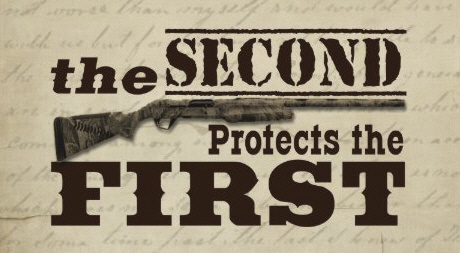

The Coequal
1st & 2nd Amendments
By Roger Katz. Nov 3, 2021
“I must own, I know not what Treason is, if sapping and betraying the liberties of a people be not treason, in the eternal and original Nature of Things.” ~ John Trenchard (1662-1723) & Thomas Gordon, English Journalists and political theorists of the late 17th and early 18th Centuries, the two writing together under the nom de guerre, “Cato.” (From zazzle.com)
The passage comes from “Reflections upon Libelling,” June 10, 1721. Ref: Cato’s Letters; or Essays on liberty, pg 249 (1737).
Back in 2003, several years before the epoch-making rulings of the High Court in Heller (2008) and McDonald (2010), the author of a law review article considered whether the protections underlying the First Amendment against censorship can also be applied to the Second Amendment?
The author of that article, David G. Browne, from whom we borrow a few apt words of the title of his article, for the subtitle of our own—“Treating the Pen and the Sword as Constitutional Equals: How and Why the Supreme Court Should Apply Its First Amendment Expertise to the Great Second Amendment Debate,”—writes, in part:
“The First and Second Amendments differ in both their construction and in the nature of the rights that they secure; it seems that the text of the Second supports a more expansive reading than that given to the First. Despite (or perhaps because of) these differences, legal scholars and philosophers have recently started to wonder what justifies giving the Second Amendment a narrow construction at the same time one gives an expansive interpretation to the First? [...]
..... 
"The United States, conceived as a free Constitutional Republic, is on a collision course with Tyranny and in the most literal sense precisely because of the degradation of the Bill of Rights and because of the arrogance of those in power who have forgotten that they rule at the pleasure of the people."
![]()

























